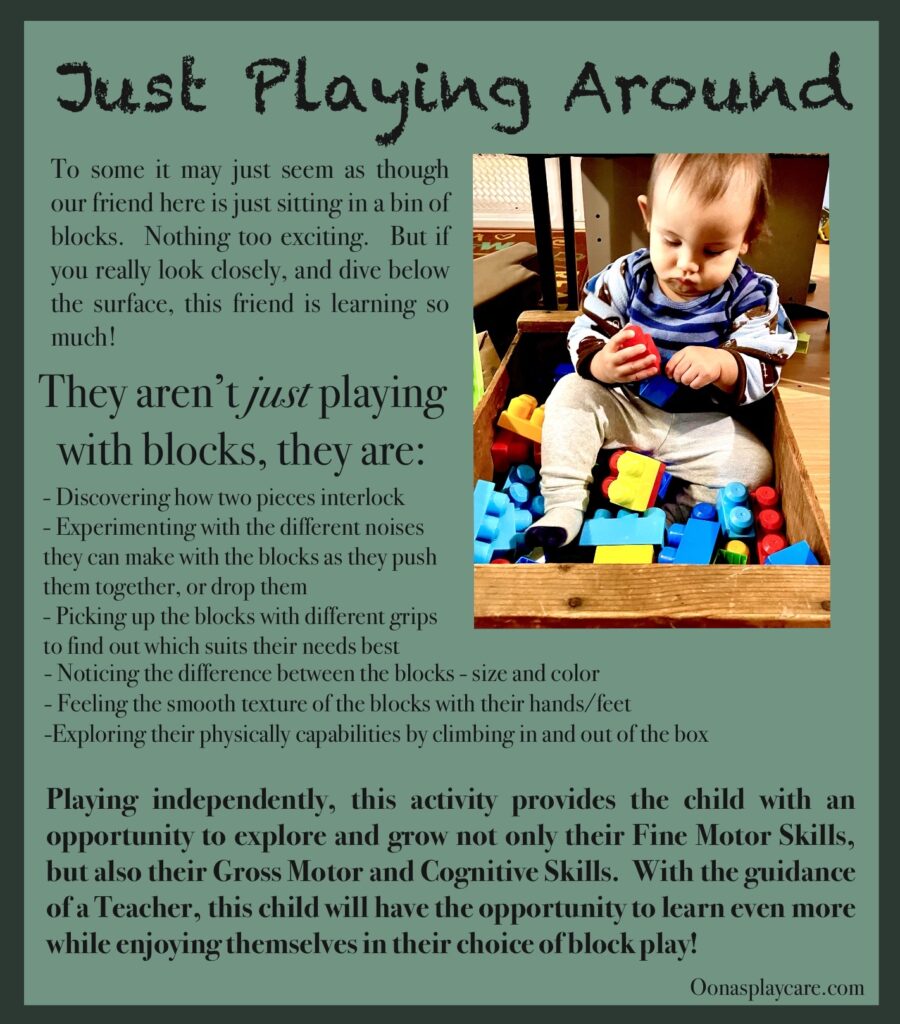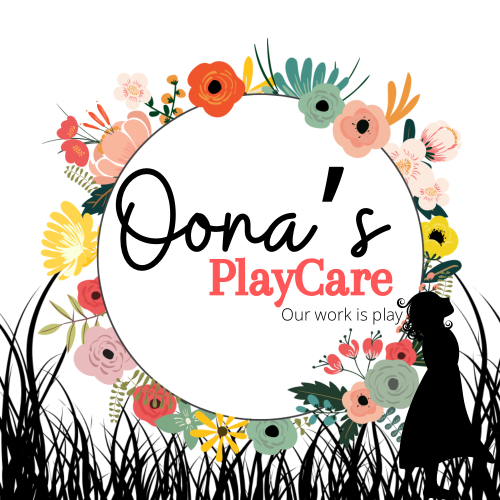So my child is just playing all day?
Yes, but also no, not just playing.
The Oxford dictionary defines play as “to do things for pleasure, as children do; to enjoy yourself, rather than work.” A child has no concept of work. They are too preoccupied with experimentation, exploration, and discovery to be bothered by that.
Have you ever heard of the saying, “If you love what you do, you’ll never work a day in your life”? Well, children love to play, and play will look differently for each child. Through play, a child can learn so many skills to strengthen their developmental domains (Fine/Gross Motor, Language, Social Emotional, Cognitive skills). Research actually shows that rats who participate in play when they are young have more adaptable social functions in their rat lives than rats who did not!
There tends to be an adult mindset that play is passive but a child in play is soaking in so much more knowledge than we can see on the surface. Every moment of play is a learning opportunity, with layers of knowledge being soaked up by the child!

When a child is engaging in play-based learning, they are actively using their brains to concentrate on the task at hand. This assists the child in learning what is called, proactive control, as well as increasing their overall attention span. Proactive control is using your brain to notice clues to be able to predict what is going to happen next. Growing this skill aids a child in the sense that as Teachers, we can now build off this child’s experience with prompts and coordinating activities to grow the child’s knowledge from the foundation they have built themselves.
Play-Based Learning allows a child to cultivate strong, crucial skills to be successful and emotionally regulated adults; skills such as what is considered to be the Six Cs in the Educational planning field: collaboration, communication, content, creative innovation, critical thinking, and confidence. By providing a child with a safe and secure environment to exist and explore, they are more likely to establish stronger skills in these areas, and more. This environment is one with a blend of child agency and adult guidance.
Check out this great Video from ZEROTOTHREE that talks about The Power of Play!
What is a Teacher’s Job in Play-Based Learning?
In a play-based childcare setting, your child is given the autonomy to have control in their education. Play-based learning is enjoyable, chosen by the child, meaningful, and process oriented. This differs from Academic-based childcare settings, where the children adhere to a strict curriculum and schedule to meet educational benchmarks. The curriculum in Academic-based childcare limits the child to learning only certain goals, where as with Play-based learning the child has the potential to unlock a multitude of new skills and are given the opportunity to learn freely in ways that we may have not even intended! The only limitations are the child’s own creativity and capabilities.
A Teacher’s job in an Academic-based childcare setting is to direct the children through the daily lesson plans, and provide opportunities of play for the child. A Teacher’s job in a play-based childcare setting is to guide the children to meet learning goals through supporting a child’s interests. As we say at Oona’s Playcare: Our Work is Play!
Play-based childcare settings promote a strong relationship between the Teacher and the children, as to adequately guide the children, the Teacher will need to conduct thorough observations of the children, really get to know them, to help them learn in the way that best suits a child’s need. Teachers are trained to look at things from a different perspective – the perspective of the child – to be able to assist the children in gaining the most from the play, by providing resources/supplies for the child, age appropriate prompts/challenges, or by simply being a friend to play with. With a play-based structure, a Teacher will have flexibility in their routines to meet everyone’s individual needs.

For more about the wonders of play-based care, please refer to Oona’s Playcare Philosophy
or
Click on the links below to learn more.
References and Additional Reading
What You Need To Know About Academic Vs Play Based Preschool
The Case of Brain Science and Guided Play: A Developing Story
The Importance of Play in Children’s Learning and Development
The 6 Cs of Education and Play
